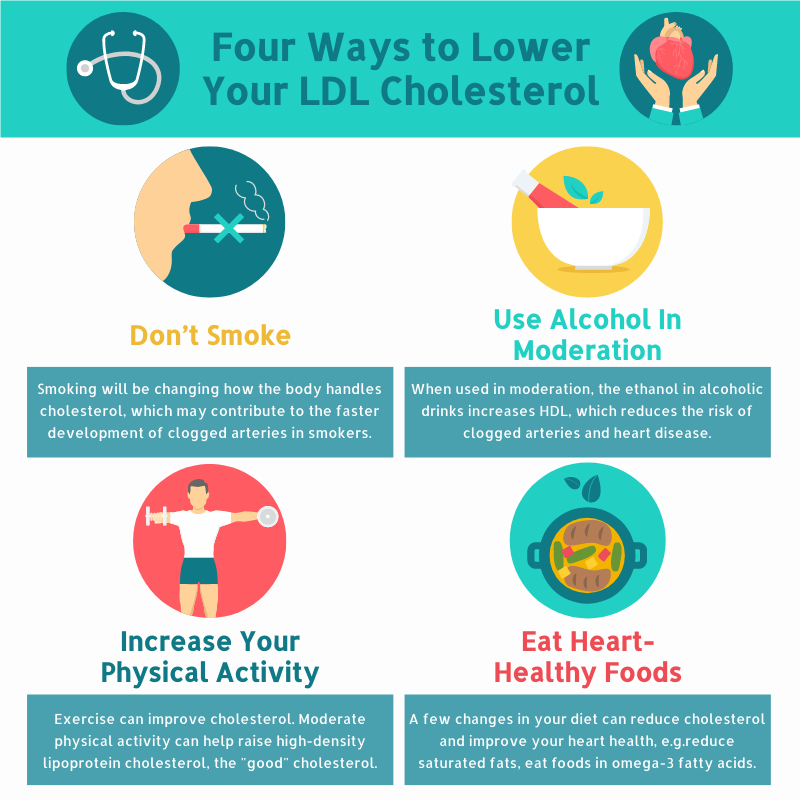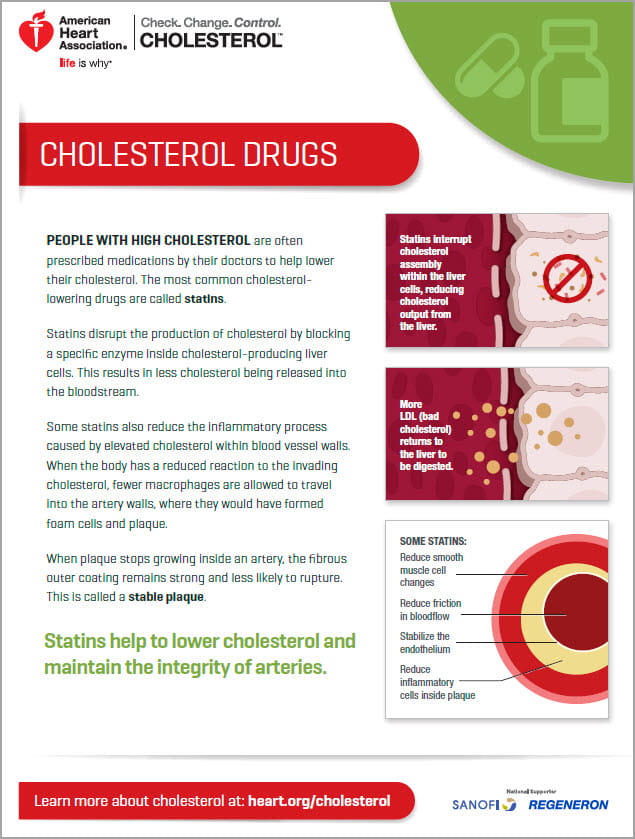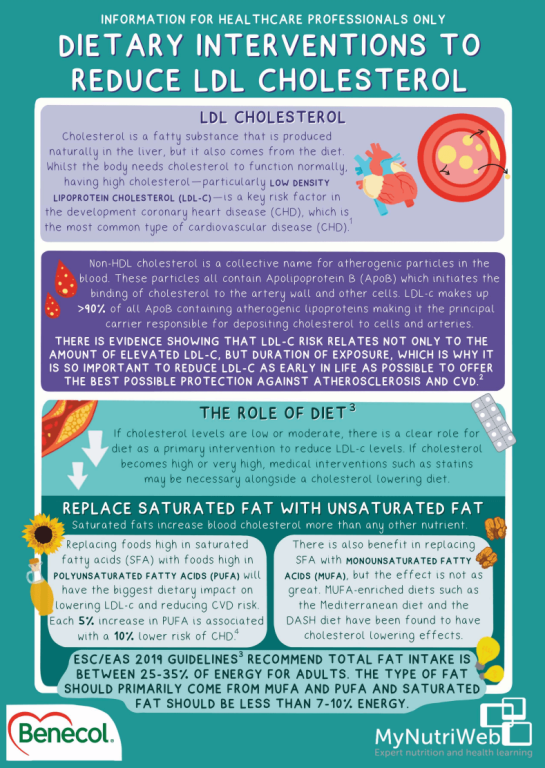Discover the surprising truth about managing LDL cholesterol levels and how simple lifestyle changes can make a big impact.
Table of Contents
- Introduction: What is Cholesterol?
- The Lowdown on LDL: Understanding ‘Bad’ Cholesterol
- Healthy Habits to Keep Cholesterol in Check
- The Omega 3 Advantage in Managing Cholesterol
- The Pressure Is On: Blood Pressure and Cholesterol
- The Magic Mineral: How Magnesium Benefits Cholesterol
- The Surprising Side of Apple Cider Vinegar
- When to See a Doctor
- Putting It All Together: Creating a Cholesterol Management Plan
- Conclusion: Staying on Track
- FAQs About Managing LDL Cholesterol
Introduction: What is Cholesterol?
Cholesterol is a word we often hear when talking about health, but what exactly is it? Well, think of cholesterol as a type of fat that is naturally found in our bodies. It is essential for our cells to function properly and helps make important substances like hormones and vitamin D. However, not all cholesterol is the same, and one type, in particular, called LDL cholesterol, can cause some health concerns if levels get too high.
When we talk about high cholesterol, we are usually referring to an excess of LDL cholesterol. LDL cholesterol is often labeled as the “bad” cholesterol because having too much of it can lead to the buildup of plaque in our arteries, potentially increasing the risk of heart disease and other health problems. So, keeping our LDL cholesterol levels in check is crucial for staying healthy.
The Lowdown on LDL: Understanding ‘Bad’ Cholesterol
When we talk about cholesterol, we often hear about two types: LDL and HDL. Today, let’s focus on LDL cholesterol, which is often referred to as the ‘bad’ cholesterol. But why is it called ‘bad’?
The Role of LDL in the Body
LDL cholesterol is like a courier that delivers cholesterol to different parts of our body. While cholesterol is essential for building cells and making hormones, having too much LDL can be harmful.
Risks of High LDL Cholesterol
When there’s excess LDL cholesterol in our blood, it can stick to the walls of our arteries, forming plaque. This can make the arteries narrow, leading to heart diseases and strokes. So, it’s important to keep our LDL levels in check.
Healthy Habits to Keep Cholesterol in Check
Managing your cholesterol levels is essential for your overall health. By adopting healthy habits, you can keep your LDL cholesterol in check and reduce the risks associated with high cholesterol.

Image courtesy of online.visual-paradigm.com via Google Images
Eating Right for Your Heart
A balanced diet plays a crucial role in lowering high cholesterol levels. Include plenty of fruits, vegetables, whole grains, and lean proteins in your meals. Limit foods high in saturated fats and trans fats, as they can raise your LDL cholesterol.
Getting Active: Exercise’s Role
Regular physical activity not only helps you maintain a healthy weight but also improves your cholesterol levels. Aim for at least 30 minutes of moderate-intensity exercise most days of the week. This can include walking, biking, swimming, or any activity you enjoy.
The Power of a Good Night’s Sleep
Sleep is essential for your body’s overall well-being, including cholesterol management. Aim for 7-9 hours of quality sleep each night to support healthy cholesterol levels. Poor sleep habits can impact your LDL cholesterol and increase the risk of heart disease.
The Omega 3 Advantage in Managing Cholesterol
Omega 3 is like a superhero for your heart! It can help manage your ldl cholesterol levels and keep you healthy. Let’s dive into why omega 3 is so important.
The Benefits of Omega 3
Omega 3 is a special type of fat that can actually improve your cholesterol levels. It helps lower ldl cholesterol, which is the “bad” type of cholesterol that can clog your arteries and cause heart problems.
When you eat foods rich in omega 3, like fish, nuts, and seeds, you’re giving your body the tools it needs to fight off high cholesterol. Think of omega 3 as your heart’s best friend—it’s always looking out for you!
Not only does omega 3 help with cholesterol, but it also supports your overall heart health. It can reduce inflammation in your body, lower your blood pressure, and even improve your mood. A happy heart is a healthy heart!
So, the next time you’re choosing what to eat, remember to add some omega 3-rich foods to your plate. Your heart will thank you!
The Pressure Is On: Blood Pressure and Cholesterol
When we talk about taking care of our health, two important factors often come into play: blood pressure and cholesterol. But what do they have to do with each other? Let’s dive in and uncover the connection between them.

Image courtesy of www.nhlbi.nih.gov via Google Images
The Link Between Blood Pressure and Cholesterol
Your body is like a complex machine that needs everything to work together smoothly. Blood pressure measures the force your blood exerts on the walls of your arteries as it flows through your body. On the other hand, cholesterol is a type of fat that travels through your bloodstream. When there’s too much LDL cholesterol (the ‘bad’ kind) in your blood, it can build up in your arteries and make it harder for blood to flow, raising your blood pressure.
Why It’s Important to Manage Both
Keeping your blood pressure and cholesterol levels in check is crucial for a healthy heart. High blood pressure puts extra strain on your heart, making it work harder. And when your cholesterol levels are high, it can lead to the buildup of plaque in your arteries, increasing the risk of heart disease and other health issues.
By monitoring and managing your blood pressure and cholesterol, you can lower the risk of heart problems and live a healthier life.
The Magic Mineral: How Magnesium Benefits Cholesterol
Magnesium is a mineral that our bodies need to function properly. It plays a crucial role in maintaining healthy cholesterol levels by supporting various biological processes. One way magnesium helps is by regulating enzymes that are involved in cholesterol production. This means that having enough magnesium in your body can help keep cholesterol levels in check.
Supporting Heart Health with Magnesium
Studies have shown that magnesium plays a significant role in supporting heart health, including managing cholesterol levels. By aiding in the relaxation of blood vessels, magnesium can help lower blood pressure, which is often linked to high cholesterol. This mineral also helps to reduce inflammation in the body, which is another factor that can impact cholesterol levels.
Getting Enough Magnesium in Your Diet
To benefit from the cholesterol-regulating effects of magnesium, it’s important to ensure you are getting enough of this mineral in your diet. Foods rich in magnesium include green leafy vegetables, nuts, seeds, and whole grains. By incorporating these foods into your meals, you can support your heart health and maintain healthy cholesterol levels.
The Surprising Side of Apple Cider Vinegar
Have you ever heard of apple cider vinegar? This tangy liquid might not sound like much, but it holds some surprising benefits, especially when it comes to managing your cholesterol levels. Let’s dive into the world of apple cider vinegar and discover how it could help you stay healthy!

Image courtesy of www.heart.org via Google Images
How Apple Cider Vinegar Benefits Your Body
Apple cider vinegar is made from crushed apples that are fermented. This process creates a vinegar that is packed with nutrients like vitamins, minerals, and antioxidants. These properties are believed to be the reason why apple cider vinegar can have positive effects on your health, including your cholesterol levels.
Improving Cholesterol Levels
Research suggests that apple cider vinegar may help lower LDL cholesterol levels, which are often referred to as the “bad” cholesterol. By reducing LDL cholesterol, apple cider vinegar could play a role in keeping your heart healthy and lowering your risk of heart disease.
How to Use Apple Cider Vinegar
If you’re interested in giving apple cider vinegar a try, there are a few simple ways to incorporate it into your daily routine. You can dilute a small amount of apple cider vinegar in water and drink it before meals, or use it in salad dressings for a tangy kick. Just remember, it’s essential to use apple cider vinegar in moderation to avoid any potential side effects.
When to See a Doctor
Knowing when to seek medical advice can be crucial in managing your cholesterol levels. If you experience certain symptoms or have concerns about your health, it’s essential to consult a doctor. Here are some signs that indicate it’s time to see a healthcare professional:
| Category | Recommendation |
|---|---|
| Diet | Limit saturated fats and trans fats, eat more fruits and vegetables |
| Exercise | Engage in regular physical activity for at least 30 minutes a day |
| Medication | Follow prescribed medication regimen as directed by healthcare provider |
| Quit Smoking | Quit smoking and avoid secondhand smoke |
Unexplained Health Issues
If you are facing unexplained health problems such as persistent fatigue, weakness, chest pain, shortness of breath, or sudden dizziness, it may be a sign of underlying issues related to your cholesterol levels. Seeking medical help can provide you with a proper diagnosis and guidance on managing your health.
Family History of Heart Disease
If you have a family history of heart disease or high cholesterol, it’s advisable to discuss this with a doctor. They can assess your risk factors and suggest appropriate measures to monitor and manage your cholesterol levels effectively.
Elevated Cholesterol Levels
If you have already been diagnosed with high LDL cholesterol levels through a blood test, it’s crucial to follow up with your healthcare provider. They can offer personalized recommendations, treatment options, and ongoing monitoring to keep your cholesterol levels in check.
Remember, early detection and appropriate intervention play a significant role in preventing serious health conditions related to high cholesterol. Your doctor can work with you to create a tailored plan that suits your health needs and goals.
Putting It All Together: Creating a Cholesterol Management Plan
Now that we’ve covered the basics of LDL cholesterol, its risks, healthy habits, omega 3 benefits, blood pressure connections, magnesium advantages, and even apple cider vinegar benefits, it’s time to put all this information into action. Crafting a personalized cholesterol management plan can help you stay on track and ensure a healthy heart. Let’s break it down step by step:

Image courtesy of benecol.co.uk via Google Images
Eating Right for Your Heart:
Start by incorporating more fruits, vegetables, whole grains, and lean proteins into your meals. Avoid processed foods and limit saturated fats and trans fats intake.
Getting Active: Exercise’s Role
Engage in physical activities you enjoy, whether it’s dancing, playing sports, or going for a walk. Aim for at least 30 minutes of moderate exercise most days of the week.
The Power of a Good Night’s Sleep
Establish a bedtime routine that allows you to get 7-9 hours of quality sleep every night. Avoid screen time before bed and create a relaxing environment in your bedroom.
Omega 3 Advantage:
Include sources of omega 3 in your diet, such as fatty fish like salmon, walnuts, chia seeds, and flaxseeds. These can help reduce inflammation in your body and improve cholesterol levels.
Blood Pressure and Cholesterol
Monitor your blood pressure regularly and seek medical advice if it’s consistently high. High blood pressure can contribute to heart disease, so managing it is crucial for overall heart health.
Magic Mineral: How Magnesium Benefits Cholesterol
Ensure you’re getting enough magnesium through your diet by consuming foods like spinach, almonds, avocado, and whole grains. Magnesium helps regulate cholesterol levels and supports heart function.
The Surprising Side of Apple Cider Vinegar
Consider incorporating apple cider vinegar into your diet in small amounts, such as a salad dressing or diluted in water. Some studies suggest it may have a positive impact on cholesterol levels, but more research is needed.
When to See a Doctor
If you’re making healthy lifestyle changes but still struggling to manage your cholesterol levels, or if you have a family history of heart disease, it’s essential to consult a healthcare professional. They can provide personalized guidance and treatments to help you stay healthy.
By combining these strategies and staying committed to your cholesterol management plan, you can take proactive steps towards ensuring a healthier heart and overall well-being. Remember, small changes can lead to big improvements in your health over time!
Conclusion: Staying on Track
Managing your LDL cholesterol levels is crucial for maintaining good health. By adopting healthy habits and making smart choices, you can keep your cholesterol in check and reduce the risk of heart disease.
Summary of Key Points
It’s important to understand what cholesterol is and why LDL cholesterol, often referred to as ‘bad’ cholesterol, needs to be managed. High LDL levels can lead to health risks, so it’s essential to make positive lifestyle changes to keep it in check.
A balanced diet, regular exercise, and sufficient sleep play key roles in managing cholesterol levels. Incorporating omega-3 fatty acids, found in fish and nuts, can also benefit heart health and cholesterol management.
Monitoring your blood pressure alongside your cholesterol levels is crucial, as they are closely linked. Magnesium and apple cider vinegar are additional natural remedies that can support healthy cholesterol levels.
Stay on Track with Healthy Habits
To maintain optimal cholesterol levels, continue to eat a heart-healthy diet, engage in regular physical activity, prioritize quality sleep, and consider incorporating omega-3 rich foods into your meals. Don’t forget to monitor your blood pressure and consider magnesium and apple cider vinegar as part of your overall cholesterol management plan.
Remember, small changes can lead to significant improvements in managing your cholesterol levels. Stay committed to your health goals and consult a healthcare professional if you have any concerns or questions about your cholesterol management plan.
FAQs About Managing LDL Cholesterol
What is cholesterol, and why do we need to manage LDL?
Cholesterol is a natural substance found in your blood that your body needs to function properly. However, too much of a specific type called LDL cholesterol, often referred to as ‘bad’ cholesterol, can build up in your arteries and lead to heart disease. Managing LDL cholesterol is important to keep your heart healthy and reduce the risk of health problems.
How can I lower my LDL cholesterol levels?
You can lower your LDL cholesterol levels by making healthy lifestyle choices, such as eating a balanced diet low in saturated and trans fats, exercising regularly, and maintaining a healthy weight. Additionally, incorporating foods rich in omega-3 fatty acids, like fish and nuts, can also help reduce LDL cholesterol.
Can magnesium help improve cholesterol levels?
Yes, magnesium plays a role in regulating cholesterol levels in your body. Consuming magnesium-rich foods, such as leafy green vegetables, nuts, and whole grains, can help support healthy cholesterol levels. However, it’s essential to consult with your healthcare provider before taking magnesium supplements.
Is apple cider vinegar effective in managing LDL cholesterol?
Some studies suggest that apple cider vinegar may have benefits for managing cholesterol levels, including reducing LDL cholesterol. However, more research is needed to confirm these effects. Incorporating apple cider vinegar into your diet in moderation and as part of a healthy lifestyle may contribute to overall heart health.





